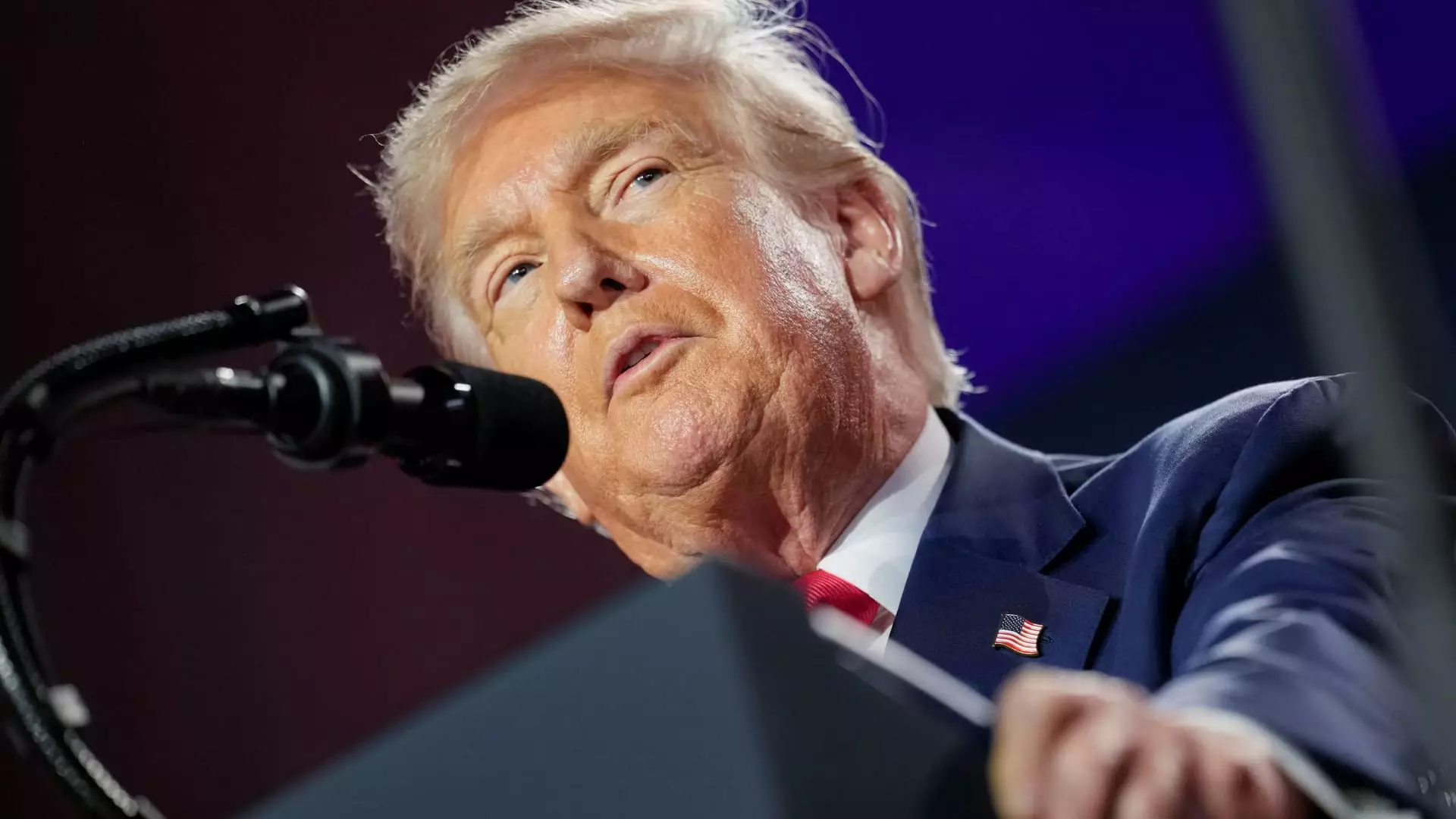In recent weeks, the political landscape has seen a disturbing shift—one that underscores a fundamental misunderstanding of the delicate balance necessary for effective monetary policy. President Donald Trump’s provocative visit to the Federal Reserve headquarters is not merely an act of political theatrics but a troubling escalation in the ongoing assault on the independence of the central bank. Such actions threaten the very foundation of economic stability and demonstrate a reckless disregard for the importance of an autonomous Fed, which has long served as a pillar of economic sovereignty. The invocation of a taxpayer-funded construction project as a political spectacle, paired with calls for the resignation of Chairman Jerome Powell, exposes a pattern of misjudgment and superficial critique rooted more in political vendettas than in sound economic reasoning.
This unprecedented intrusion—highlighted by Trump’s public tour of the Fed amidst accusations of mismanagement and waste—serves to undermine the credibility of an institution designed to operate free from political pressure. The central bank’s independence is pivotal in maintaining investor confidence and ensuring that monetary policy decisions are made based on economic data rather than partisan agendas. Trump’s blatant interference not only erodes this credibility but also risks provoking a cycle of politicized meddling that could destabilize market expectations and interfere with the Fed’s mandate to control inflation and promote employment.
The Consequences of Political Interference in Monetary Policy
The political motivations behind Trump’s pressure campaigns reveal a myopic obsession with short-term economic gains at the expense of long-term stability. Demanding immediate rate cuts, accusing Powell of incompetence, and publicly calling for his resignation reflect a fundamental misunderstanding of how monetary policy works. Rate adjustments are complex tools influenced by a wide array of economic indicators, and simplistic demands from the White House threaten to distort the careful balancing act the Fed performs.
More troubling still is the push to scrutinize or divert attention from the multi-billion dollar renovation project—an effort that raises questions about priorities. While cost overruns are a legitimate concern, using infrastructure expenses as a political weapon trivializes the importance of maintaining secure and functional central banking facilities. It is especially unwise for a president with limited clear understanding of monetary policy to use such issues as leverage against an institution designed to be apolitical.
The controversy also exposes a dangerous misconception: that the Fed can be manipulated to serve partisan interests. The Supreme Court’s affirmation of the Fed’s independence underscores its role as a neutral steward of economic health. Interference, whether through public shaming or behind-the-scenes pressure, puts this independence at risk. Policymakers need to recognize that centrally managing the economy from the Oval Office is a recipe for chaos, inflation, and economic downturn—outcomes that would harm ordinary Americans far more than political rivals.
The Broader Implications for Democracy and Stability
This episode transcends traditional partisan disputes—it’s a warning sign of democratic erosion. When presidents dismiss the importance of independent institutions and treat them as pawns in a political game, we jeopardize the checks and balances vital to a healthy democracy. The Fed’s credibility is a shared asset, critical to the stability of our financial markets and the well-being of millions of citizens who rely on a steady economy.
Furthermore, Trump’s actions symbolize a broader trend—a disregard for the complexities of economic policymaking in favor of populist spectacle. Such tactics threaten to politicize future economic crises, making it impossible for policymakers to respond effectively during times of stress. If central bank independence erodes, it could lead to hyperinflation, volatile markets, and increased income inequality—outcomes that a center-left liberal perspective rightly seeks to prevent through responsible governance.
In broad terms, this episode should serve as a wake-up call. The health of America’s economy depends not on the whims of a political leader’s tweet, but on the strength of institutions that operate free from partisan interference. Protecting the Fed’s independence is ultimately about protecting the economic security of the American people and ensuring that our democracy remains resilient in the face of political tumult. Only through unwavering respect for central banking autonomy can we foster stability, growth, and fairness for all.


Leave a Reply